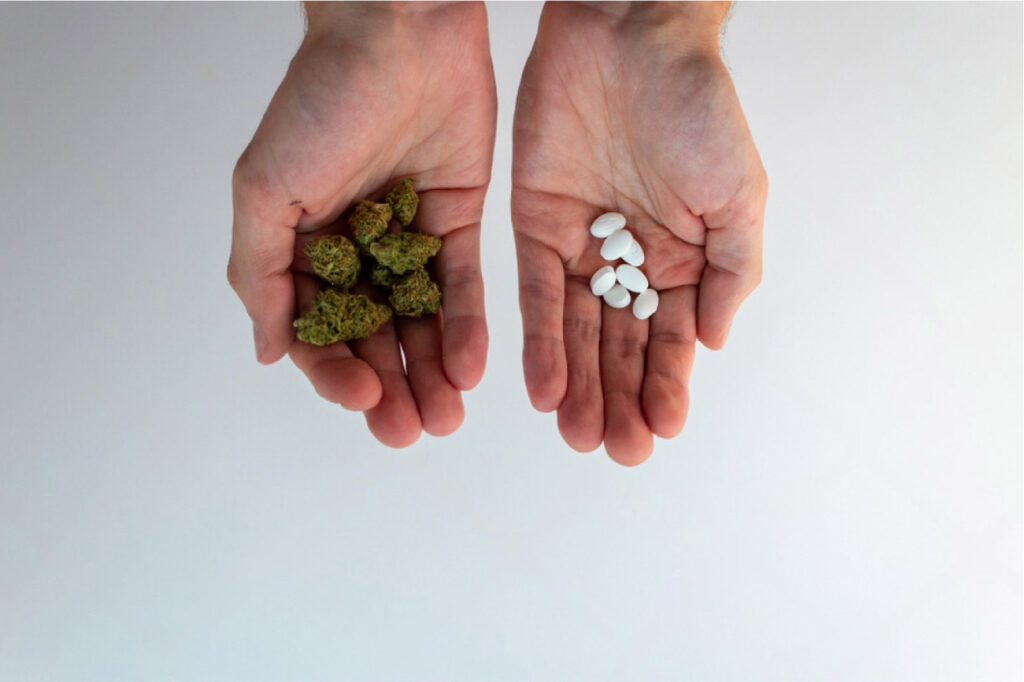Inspiring Stories of Overcoming Addiction and Reclaiming Life
Addiction can feel like an unbreakable cycle, leaving many feeling trapped and powerless. But recovery is possible—and countless people have found the strength to rebuild their lives, rediscover joy, and create a future they once thought was out of reach.
In this post, we share powerful, real-life stories of individuals who faced their darkest moments and emerged stronger. These inspiring journeys remind us that no matter how difficult the road, healing, and transformation are always within reach. So, if you are struggling with addiction or supporting someone who is, these stories offer hope, courage, and proof that recovery is possible.
Story 1: Injured Soldier’s Path – Jonathan Lopez
Jonathan Lopez, a former soldier, had severe physical and emotional suffering during his service and relied extensively on painkillers to survive. This need grew into addiction, cutting him off from his actual self and purpose. The numbing effects of medication hid his agony while also destroying his identity and relationships.
Jonathan found a new road to rehabilitation after realizing the catastrophic consequences of addiction. With a desire to regain his life, he resorted to psychedelic-assisted therapy, a breakthrough approach that provided both hope and regeneration. This daring decision marked the start of Jonathan’s incredible path of recovery and self-discovery.
A review article in the National Library of Medicine explores psychedelics as potential treatments for chronic pain.
Rediscovery Through Psychedelic-Assisted Therapy
Jonathan turned to NPrecovery, an innovative approach combining psychedelic therapy with counseling and group support.
This is how his transformative journey unfolded:
- Therapy: Under professional guidance, Jonathan experienced psychedelic sessions designed to unlock suppressed emotions and reframe his perspective on pain and addiction.
- Counseling: Individual counseling sessions helped him process insights gained during therapy and provided him with tools to rebuild a healthy mindset.
- Group Support: Connecting with others in similar situations allowed Jonathan to share his experiences, fostering community and support.
Post-Recovery Achievements
Jonathan’s life changed dramatically following his recovery. He regained his identity and sense of purpose, becoming a fervent supporter of alternative healing techniques and mental health.
Jonathan’s achievements include:
- Advocacy: Sharing his story to raise awareness about the benefits of psychedelic-assisted therapy for veterans and others battling addiction.
- Reconnection: Rebuilding meaningful relationships with loved ones.
- Inspiration: Serving as a beacon of hope for others facing similar struggles.
Jonathan Lopez’s path demonstrates the power of resilience and the promise of novel therapies such as NPrecovery to heal the body and soul. Read More
Magic Mushrooms (Psilocybin) and Addiction

Magic mushrooms, also known as psilocybin mushrooms, have the ability to treat addiction. There is a naturally occurring substance, psilocybin, in mushrooms having psychedelic effects on the brain.
The Science Behind Psilocybin and Addiction Treatment
Psilocybin works by resetting brain pathways associated with addictive behaviors.
A study in Valley Spring Recovery Center highlights that it helps individuals address the root causes of addiction by enhancing emotional introspection and reducing cravings. This process, often guided by therapy, opens new pathways to long-term recovery.
Psilocybin is thought to assist people in facing and resolving the underlying causes of their reliance, in contrast to conventional treatments that frequently only address symptoms.
Magic mushrooms provide a unique method for people struggling with substance misuse by encouraging profound self-reflection and developing a sense of connectedness, which is commonly described as a “reset” for the mind.
Can Magic Mushrooms Help with Addiction – Current Research
Ongoing clinical trials have shown promising results.
Frontiers article in 2023 reviews highlights how psychedelics, such as psilocybin, have shown promising results in clinical trials, offering potential alternatives to traditional treatments for substance abuse.
Similarly, in June 2023, the article provides a systematic review of the therapeutic effects of psilocybin in treating addiction.
It assesses different clinical trials and studies, demonstrating that psilocybin, as part of a holistic therapy approach, can considerably help people overcome addiction and substance dependence, making it a promising alternative to traditional therapies.
These findings highlight how magic mushrooms could complement traditional treatments for addiction.
Caution and Ethical Concerns
While the potential of psilocybin is exciting, it is important to approach this treatment with caution:
- Experimental Status: Psilocybin-assisted therapy is still in its early stages and is considered experimental. It is not yet widely available and is currently limited to clinical trials or therapeutic settings in select regions.
- Professional Supervision: Using psilocybin without professional guidance can lead to adverse effects, including psychological distress or misuse. Its administration should always occur in a safe, controlled environment with trained professionals.
- Ethical Considerations: The growing popularity of psilocybin therapy raises ethical questions about accessibility, affordability, and the potential for misuse outside of therapeutic contexts.
As research continues, it is crucial to balance enthusiasm for this promising treatment with responsible practices prioritizing patient safety and well-being.
Story 2: Navy Veteran’s Journey – Gringo
After years in the Navy, Gring struggled to adjust to civilian life, turning to drink to cope with persistent trauma and stress. Casual drinking quickly turned into dependence, affecting his relationships, mental health, and job. Personal difficulties and health issues forced him to address the consequences of his addiction.
Gring discovered psychedelic-assisted therapy while looking for an alternative to traditional techniques of treatment. This novel technique allowed him to address the underlying causes of his problems, resulting in deep healing and rejuvenation. Gring’s daring decision to pursue alternative therapy revolutionized his life, giving him a sense of purpose and security.
Transformative Therapies with Psychedelic
Gring’s recovery journey began with the support of NPrecovery, specializing in psychedelic-assisted therapy for veterans.
His path to healing included:
- Psychedelic-Assisted Therapy: Guided sessions with trained professionals helped Gring confront suppressed emotions and reprocess his trauma in a safe and controlled setting. These experiences allowed him to gain clarity and address the root causes of his dependence.
- Integrative Counseling: Following each session, counseling sessions helped Gring integrate his psychedelic experiences into actionable steps for his daily life, providing him with new tools to cope with stress and triggers.
- Veteran Support Groups: Sharing his experiences with other veterans in group therapy fostered a sense of camaraderie and understanding, reinforcing his commitment to recovery.
Through these holistic therapies, Gring began to rebuild his self-esteem, overcome his addiction, and redefine his sense of purpose.
Post-Recovery Achievements
Gring’s transformation post-recovery is a testament to the power of resilience and innovative therapies. His achievements include:
- Renewed Relationships: Rebuilding trust and connections with family and friends that were strained by his addiction.
- Career Stability: Finding focus and stability in his professional life, reigniting his passion for service and leadership.
- Personal Growth: Becoming an advocate for alternative healing methods, Gring now shares his story to inspire fellow veterans to explore paths to recovery.
Gring’s journey underscores the profound impact that psychedelic-assisted therapy can have in helping veterans overcome addiction, heal from trauma, and rediscover their true selves. Read More
Traditional vs Alternative Therapies in Addiction Recovery

The proper treatment approach is important for successful addiction recovery. Traditional methods have been effective for decades while emerging therapies offer innovative solutions that cater to diverse needs.
Traditional Therapies In Addiction Recovery
Conventional addiction recovery methods include well-established programs and techniques, such as:
- 12-Step Programs: Proven frameworks like Alcoholics Anonymous (AA) provide peer support and a structured path to recovery.
- Cognitive Behavioral Therapy (CBT): A widely used psychological approach that helps individuals identify and change harmful thought patterns.
- Medication-Assisted Treatments (MAT): Combines FDA-approved medications with therapy to treat substance dependency effectively.
| Strengths | Limitation |
| Well-researched and widely accessible. | May not address the root psychological causes of addiction. |
| Offer structured, step-by-step guidance. | It may not address the root psychological causes of addiction. |
| Supported by a network of peers and professionals. |
Alternative Therapies In Addiction Recovery
Emerging therapies are gaining popularity as they address addiction in holistic and innovative ways, including:
- Psychedelic-Assisted Therapy: Treatments using psilocybin, ketamine, or MDMA show potential in resetting harmful neural pathways.
- Mindfulness Practices: Techniques like meditation and yoga help individuals manage cravings and reduce stress.
- Holistic Approaches: These methods incorporate nutrition, exercise, and emotional wellness to support recovery.
| Strengths | Limitation |
| Address underlying trauma and emotional struggles. | Lack of widespread availability and regulation. |
| Encourage self-awareness and holistic healing. | Experimental status in many regions. |
| Integrate cutting-edge research for innovative results. |
Story 3: Inner City Trauma – Medhani Vaughn
Growing up in the inner city, Alex faced relentless challenges marked by violence, instability, and neglect. Seeking escape, he turned to substances, which soon became a means to numb the pain of unresolved trauma. This led to a destructive cycle that strained family relationships and eroded his self-worth.
At his lowest point, alienated and battling mental health struggles, Alex realized his life was slipping away. Determined to change, he sought help. A conversation with a trusted mentor introduced him to microdosing psychedelics as a therapeutic tool, offering him hope and a pathway to heal from within and reclaim his life.
Microdosing as a Path to Recovery
Alex’s path to recovery began with NPrecovery, where he was guided through a transformative program tailored to his needs. The journey included:
- Microdosing Psychedelics: Under professional supervision, Alex began a microdosing regimen. This approach helped him manage emotional triggers, enhance self-awareness, and process his trauma in manageable steps.
- Trauma-Informed Therapy: Coupled with microdosing, Alex engaged in regular therapy sessions to address the root causes of his addiction and build healthy coping mechanisms.
- Mindfulness Practices: Learning meditation and breathwork helped Alex stay grounded and cultivate resilience during moments of emotional difficulty.
- Community Support Groups: Connecting with others who shared similar experiences provided Alex with a supportive environment, helping him feel understood and less isolated.
Through this integrated approach, Alex began to rebuild his mental and emotional foundation.
Outcome: Healing and Reconnection
Alex’s recovery marked the beginning of a new chapter in his life. His achievements include:
- Improved Mental Health: A newfound clarity and emotional stability allowed Alex to confront life’s challenges without resorting to substances.
- Boosted Self-Esteem: Overcoming addiction and trauma helped Alex regain confidence and a sense of purpose.
- Repaired Family Relationships: By addressing his past and committing to change, Alex reconnected with his family, rebuilding trust and fostering stronger bonds.
Alex’s story is a powerful reminder that healing is possible, even for those facing the most profound challenges. Through microdosing and trauma-informed therapy, he transformed his pain into strength and reclaimed his future. Read More
Emerging Trends in Addiction Recovery
Addiction recovery is continuously evolving, with innovative methods and technologies shaping the future of treatment. By embracing emerging trends, individuals struggling with addiction have access to more personalized and practical solutions than ever before. From cutting-edge technology to groundbreaking psychedelic-assisted therapies, these advancements are revolutionizing how we approach recovery.
The current trends, according to American Addiction Centers, state that there is a growing use of medication-assisted treatment (MAT) and personalized care in addiction recovery. It also emphasizes the rise of telehealth services for addiction treatment.
Technology in Recovery: A Digital Revolution
Technology has opened new doors for addiction recovery, providing tools that enhance accessibility and convenience. Key developments include:
- Recovery Apps: Smartphone apps offer features such as habit tracking, motivational reminders, and community support. Popular examples include apps tailored for sobriety tracking and mindfulness.
- Virtual Therapy: Online counseling sessions make it easier for individuals to access professional help, especially for those in remote areas or with busy schedules.
- Telehealth Services: Telemedicine allows for real-time consultations with addiction specialists, ensuring consistent care even outside traditional treatment settings.
These digital tools empower individuals to stay connected to their recovery journey, providing support whenever and wherever they need it.
Psychedelic-Assisted Therapy: Transforming Addiction Treatment
Psychedelics like magic mushrooms (psilocybin), ketamine, and MDMA are at the forefront of addiction recovery research. This innovative approach focuses on resetting the brain’s neural pathways to break addictive patterns.
- Magic Mushrooms: Psilocybin has shown promise in helping individuals confront underlying trauma and foster emotional breakthroughs.
- Ketamine Therapy: Approved for some mental health conditions, ketamine is now being studied for its potential to reduce cravings and address co-occurring depression in addiction recovery.
- MDMA: In controlled clinical settings, MDMA-assisted therapy has demonstrated effectiveness in treating addiction by promoting emotional healing and reducing fear responses.
Psychedelic-assisted therapy is a profound shift in the treatment landscape, offering a complementary approach to traditional methods.
Why Do These Emerging Addiction Recovery Methods Matter?
- Personalized Care: These methods cater to individual needs, addressing the psychological and emotional roots of addiction.
- Improved Accessibility: Technology makes recovery support available to anyone, regardless of location.
- Cutting-Edge Research: Psychedelics and virtual solutions are backed by growing scientific evidence, showing potential for long-term success.
Story 5: Ibogaine Healing – Jen Bruce’s Experience
For decades, Sam Fullerton struggled with opiate addiction, a dependency that began early and grew stronger over time. His health, relationships, and sense of self all suffered, leaving him burdened with regret and a history of missed opportunities. Seeking help later in life, Sam encountered a health crisis that became his wake-up call.
Determined to escape the cycle of addiction, he discovered psychedelic therapy and found hope in the transformative potential of DMT. This powerful, often misunderstood substance allowed Sam to confront deep-rooted trauma, paving the way for healing and a renewed sense of purpose in life.
Transforming Through DMT-Assisted Therapy
Sam’s recovery journey began with the support of NPrecovery, which offered a structured and compassionate approach to healing.
Key components of his transformation included:
- DMT-Assisted Therapy: Supervised sessions with DMT allowed Sam to confront the root causes of his addiction. The experience helped him unlock suppressed emotions, reframe his past, and gain clarity about his life’s direction.
- Integration Counseling: Post-DMT sessions included guided counseling, enabling Sam to process the insights from his experiences and translate them into actionable steps for lasting change.
- Holistic Support: Sam participated in mindfulness exercises, group therapy, and personalized wellness plans to reinforce his recovery and build resilience.
- Community Connections: Engaging with others who had walked similar paths gave Sam a sense of belonging and encouragement, proving he wasn’t alone in his fight.
Through these therapies, Sam began to see not only the possibility of recovery but also the opportunity to thrive.
Outcome: A Life Renewed
Sam’s reflections on his journey highlight the profound changes he experienced post-recovery. His achievements include:
- Gratitude and Peace: Sam now speaks of his life with a sense of calm and fulfillment, acknowledging the challenges he overcame as part of his growth.
- Stronger Relationships: Rebuilding connections with family and friends, Sam has found renewed joy in his personal life.
- Advocacy for Healing: Inspired by his journey, Sam has become an advocate for psychedelic therapies, sharing his story to help others battling long-term addiction.
Sam Fullerton’s story is a testament to the power of resilience and the transformative potential of psychedelic-assisted therapy. Read More.
The Bottom Line
The stories shared here reveal the powerful resilience of individuals who faced addiction head-on and found healing through innovative therapies like psychedelic-assisted treatments. From veterans battling trauma to those overcoming lifelong struggles, these journeys highlight how personalized, holistic care can reignite purpose and rebuild lives.
Their courage to welcome emerging treatments offers hope for those still struggling, showing that recovery is not just about breaking free from addiction but about rediscovering strength, connection, and meaning. These stories inspire us all to believe that transformation is possible, no matter how difficult the path.



